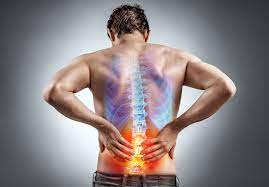It is crucial to keep the heart healthy as it is arguably the most important organ of the body. The regular functioning of the heart is disrupted by several cardiovascular diseases with minor or significant consequences. Physiotherapy plays a very important role in maintaining and improving heart health for those suffering from cardiovascular disease. A more extensive role is played by physiotherapy in the rehabilitation and recovery of those who have undergone interventions and surgeries for their cardiovascular ailments. Physiotherapy helps patients work with their bodies to enhance their heart’s function.
Physiotherapy for Heart Health
The primary goal of physiotherapy is to enhance muscle strength and movement. Cardiovascular rehabilitation for heart disease is a distinct category that focuses on improving the heart’s performance and is provided by Physiotherapy centres in Mumbai and other cities.
Physiotherapy can help blood flow more freely through the heart, open up vessels, and strengthen the heart’s muscles. Those at risk can help themselves by starting with easy workouts and movements to improve muscles before they develop significant difficulties.
A Cardiac Physiotherapist
A cardiac physiotherapist is specialized to treat patients after a cardiac event such as angina, a heart attack, heart failure, or the insertion of a pacemaker. Around half of the individuals with heart disease also have other health issues, with 30 percent having back pain and arthritis, 21% having diabetes, and another 16% having respiratory disease, such as asthma. The cardiac physiotherapist can help you manage your heart health in the following ways:
- Acute
Working in an acute context, physiotherapists read reports and analyze them to draw the proper inference. Analyzing this data can help them evaluate the condition of the patient, corroborate the findings clinically, and prescribe the appropriate treatment regimen.
Diagnostic methods for cardiac patients include electrocardiograms, chest x-rays, computed tomography, magnetic resonance imaging, angiography, lung function tests, and echocardiograms.
- Musculoskeletal
Major heart trauma or diminished blood flow from the heart can impact the performance of other muscles in the body. It damages muscles in the arms, face, and legs, but muscles can also become weak due to a lack of blood supply before these occurrences. Physiotherapists play an active role in working with such patients and providing the treatment required based on their knowledge and experience.
For example, patients who present with a frozen shoulder following a coronary artery bypass graft (CABG) or device implantation benefit from a physiotherapist’s examination and subsequent treatment.
- Movement analysis
A physiotherapist is skilled in movement analysis and can improve musculoskeletal mobility, and balance concerns by monitoring gait patterns. The physiotherapist can prescribe individually appropriate exercises as required.
- Respiratory
A physiotherapist has clinical skills in breathing techniques, auscultation, oxygen therapy, and understanding several respiratory disorders, such as COPD and asthma.
The physiotherapist’s respiratory knowledge and skills enable them to offer guidance on breathing and relaxation strategies, which may help patients with cardiovascular problems
- Neurology
Stroke is a critical affliction that shares many of the same risk factors as cardiovascular disease. As a result, a patient’s history of a transient ischemic attack or stroke with lasting physical symptoms is relatively unusual. Physiotherapists are aware of the varied physical manifestations of stroke and can alter the workout accordingly, as per the needs of individual patients.
Physiotherapy for Cardiac Rehabilitation
Physiotherapy ensures appropriate exercises for your body and abilities by working with your heart specialist and physiotherapy center. Here are a few fundamental treatment methods for the patient:
- Breathing Exercises
Even those who aren’t prone to heart problems put an additional load on our heart muscles when we don’t practice breathing. Breathing exercises can help us relax our muscles, become more conscious, and make us more aware of our bodies. A physiotherapist can assist with breathing exercises to increase breathing capacity and relax muscles.
- Body’s Strength and Balance Recovery
You can improve your body’s ability to move and stabilize by working with a physiotherapist on muscle strength.
For example, your physiotherapist may recommend simple arm-raising exercises to assist you to enhance your arm’s range of motion. They may also recommend a tiny, stationary bike-peddle machine for those with muscular leg weakness. It is particularly helpful for patients to regain mobility after bypass surgery.
- Cardiac Exercises
Post major heart surgery, it is crucial to get the heart pumping to optimum levels once the patient regains control over their bodily motions and has developed their muscles. The physiotherapist may recommend muscle stretching, progressing to walking or a light jog to uplift the heart rate, and concluding with a cool down. The heart rate gradually returns to its normal resting state.
A physiotherapist’s clinical knowledge and abilities in acute medicine, musculoskeletal, movement analysis, pulmonary, and neurology are invaluable in assessing cardiac patients and helping them recover, making their experience and support worthwhile.
Conclusion
Physiotherapy center in Mumbai and other cities for cardiac health is an integral part of the multidisciplinary team (MDT) that provides cardiac patients with complete cardiac rehabilitation (CR). Their goal is to assist patients in rehabilitating and returning their bodies and hearts to peak functioning levels. Also, check our other blogs.





